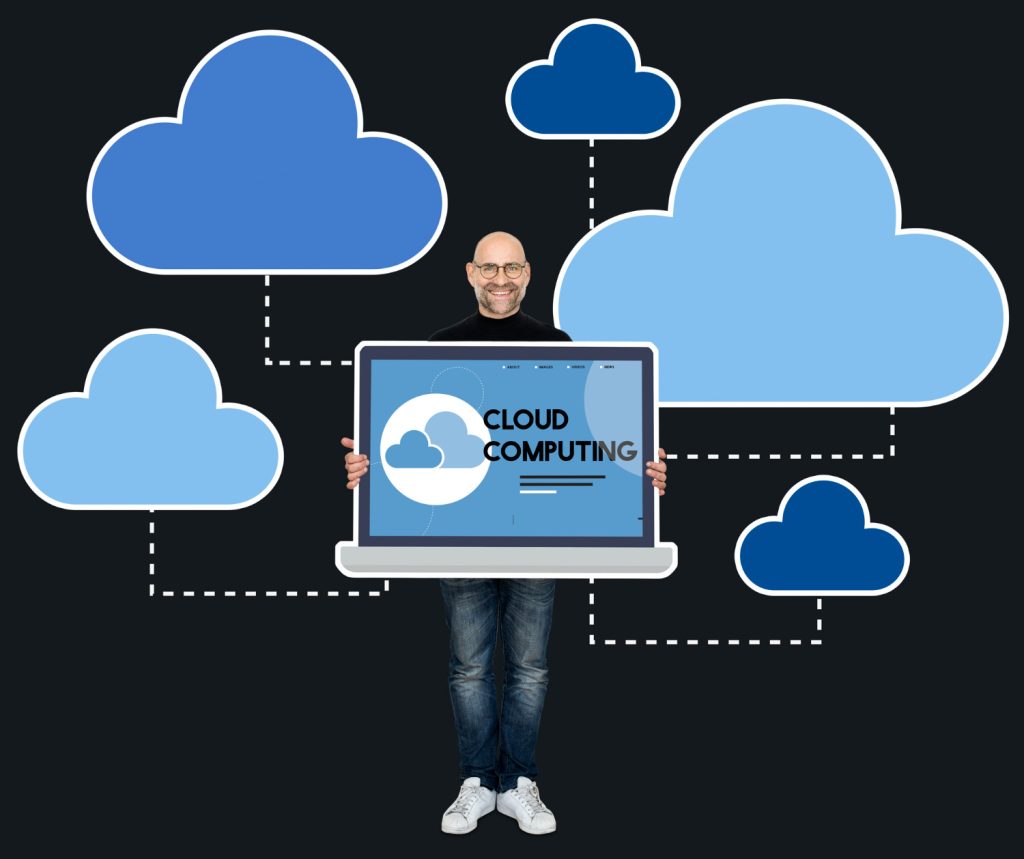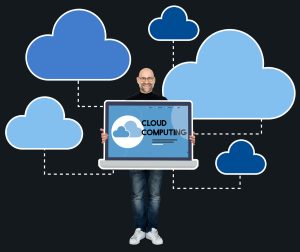Cloud computing has become the backbone of digital transformation. Whether you’re managing infrastructure, deploying applications, or delivering services over the internet, cloud computing software plays a central role in building scalable, flexible, and efficient systems.
In this guide, we explore the best software for cloud computing in 2025—tools that help businesses, developers, and IT teams build, manage, and optimize cloud-based environments across IaaS, PaaS, and SaaS layers.
Why Cloud Computing Software Matters
Cloud computing is no longer optional—it’s foundational. Companies rely on cloud platforms to:
-
Scale resources on demand
-
Deploy global applications without owning physical servers
-
Automate infrastructure provisioning
-
Improve system reliability and security
-
Reduce costs and operational overhead
Choosing the right cloud software can determine your success in maintaining high availability, scalability, and performance.
Types of Cloud Computing Software
Before diving into the top tools, it’s helpful to distinguish the types:
-
IaaS (Infrastructure as a Service) – Offers compute, storage, and networking on demand
-
PaaS (Platform as a Service) – Provides a framework for developers to build apps without managing infrastructure
-
SaaS (Software as a Service) – Delivers ready-to-use software over the internet
-
Cloud Management & Monitoring – Tools to orchestrate, monitor, and optimize cloud workloads
Best Software for Cloud Computing in 2025
1. Amazon Web Services (AWS)
AWS is the world’s leading cloud computing platform offering a vast range of services across compute, storage, networking, databases, AI, and analytics.
Key Features:
-
EC2 for scalable compute power
-
S3 for secure object storage
-
Lambda for serverless computing
-
RDS for managed databases
-
Global infrastructure with 30+ regions
2. Microsoft Azure
Azure is a comprehensive cloud platform by Microsoft, widely adopted by enterprises for its integration with Windows, Office 365, and hybrid environments.
Key Features:
-
Virtual Machines and Azure Kubernetes Service
-
Azure Functions for event-driven workloads
-
Seamless integration with Active Directory and Power BI
-
Hybrid cloud support with Azure Arc
-
Compliance with global regulatory standards
3. Google Cloud Platform (GCP)
GCP is known for its data analytics, machine learning, and Kubernetes leadership. It’s ideal for cloud-native apps and data-heavy projects.
Key Features:
-
Compute Engine for VMs
-
Cloud Run and App Engine for PaaS workloads
-
BigQuery for powerful analytics
-
Vertex AI for machine learning workflows
-
Industry-grade networking and security
4. IBM Cloud
IBM Cloud offers both IaaS and PaaS solutions with a strong emphasis on AI, hybrid cloud, and enterprise-grade security.
Key Features:
-
Red Hat OpenShift-based Kubernetes platform
-
Watson AI and automation tools
-
Secure Virtual Private Cloud (VPC)
-
Cloud Foundry for app deployment
-
Flexible hybrid cloud capabilities
5. Oracle Cloud Infrastructure (OCI)
OCI delivers high-performance cloud services optimized for enterprise databases and applications. It’s increasingly used for ERP and mission-critical workloads.
Key Features:
-
Autonomous Database with AI-driven tuning
-
OCI Compute, Block Volume, and Object Storage
-
Strong performance for Oracle apps (e.g., EBS, JD Edwards)
-
Global footprint with low-latency regions
-
Integrated security and identity features
6. VMware Cloud
VMware Cloud helps businesses extend their existing virtualization infrastructure into the cloud. It’s a preferred choice for hybrid and multi-cloud strategies.
Key Features:
-
vSphere, NSX, and vSAN integration
-
Support across AWS, Azure, and Google Cloud
-
Unified management for on-prem and cloud VMs
-
Fast migration using vMotion
-
Operational continuity for legacy systems
7. DigitalOcean
DigitalOcean is a developer-focused cloud platform offering simple, scalable infrastructure ideal for startups and small teams.
Key Features:
-
Droplets (VMs) with fast provisioning
-
Managed Databases and Kubernetes
-
Spaces (object storage) and App Platform (PaaS)
-
Predictable flat-rate pricing
-
Easy-to-use UI and robust API
8. Heroku
Heroku is a popular PaaS platform built for developers who want to deploy and manage apps without handling infrastructure.
Key Features:
-
One-click deployment for apps in multiple languages
-
Built-in CI/CD pipeline tools
-
Add-ons marketplace for databases, logging, caching
-
Auto-scaling dynos
-
Ideal for rapid prototyping and SaaS apps
9. Red Hat OpenShift
OpenShift is an enterprise Kubernetes platform by Red Hat, designed for managing containerized applications at scale.
Key Features:
-
Full-stack container management
-
Developer tools and CI/CD integration
-
Multi-cloud and hybrid cloud support
-
Based on Kubernetes and Red Hat Enterprise Linux
-
Enhanced security and RBAC controls
10. Cloudflare Workers
Cloudflare Workers is a serverless platform for building high-performance applications at the edge. It’s ideal for microservices and global API deployment.
Key Features:
-
Serverless compute at 300+ edge locations
-
Zero cold starts and ultra-low latency
-
Support for JavaScript, TypeScript, WASM
-
KV and Durable Objects for stateful storage
-
DDoS protection and built-in CDN
Comparison Table
| Software | Type | Ideal For | Serverless | Managed DB | Container Support |
|---|---|---|---|---|---|
| AWS | IaaS/PaaS | Enterprises, SaaS, DevOps | Yes | Yes | Yes |
| Microsoft Azure | IaaS/PaaS | Enterprise Windows & hybrid apps | Yes | Yes | Yes |
| Google Cloud | IaaS/PaaS | AI/ML, analytics, startups | Yes | Yes | Yes |
| IBM Cloud | IaaS/PaaS | AI, automation, enterprise hybrid | Yes | Yes | Yes |
| Oracle Cloud | IaaS/PaaS | Database-intensive enterprise apps | Yes | Yes | Yes |
| VMware Cloud | Hybrid | On-prem to cloud virtualization | No | No | Limited |
| DigitalOcean | IaaS/PaaS | Developers, small businesses | Limited | Yes | Yes |
| Heroku | PaaS | App developers, startups | Yes | Yes | Yes |
| Red Hat OpenShift | PaaS | Kubernetes-based deployments | No | No | Yes |
| Cloudflare Workers | Serverless | Global APIs, edge computing | Yes | Yes (KV) | No (non-K8s) |
How to Choose the Right Cloud Computing Software
Choosing the best cloud platform depends on your goals:
-
General-purpose cloud with wide service range: AWS, Azure, GCP
-
AI and machine learning workloads: Google Cloud, IBM Cloud
-
Enterprise and database-heavy systems: Oracle Cloud, Microsoft Azure
-
Developer-first, small-team friendly: DigitalOcean, Heroku
-
Hybrid and multi-cloud: VMware Cloud, OpenShift
-
Edge and serverless: Cloudflare Workers
Ask yourself:
-
Do you need managed services or full control over VMs?
-
What programming languages and frameworks are you using?
-
Are scalability and availability your top priorities?
-
Do you have compliance or data locality requirements?
Conclusion
Cloud computing software has redefined how modern businesses build, deliver, and manage applications. Whether you’re a startup founder, a DevOps engineer, or part of a global IT team, the right tool can enhance performance, cut costs, and future-proof your infrastructure.
From global leaders like AWS and Azure to developer-friendly platforms like DigitalOcean and Heroku, the tools listed here represent the best software for cloud computing in 2025. Choose the one that aligns with your goals, budget, and team’s expertise—and start building in the cloud with confidence.







